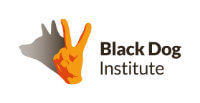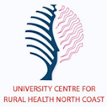![]()
About myCompass
myCompass is an interactive, fully automated, self-help CBT service to assist people with symptoms of depression, anxiety and stress. The program supports real-time monitoring of symptoms and behaviours and includes interactive skill-building modules. myCompass is available via the internet on mobile phone, computers and tablets.
Who is myCompass for?
The age range of intended users of myCompass is 18 to 75 year olds.
Is there a cost to use myCompass?
No – there is no registration fee, and users are not billed for the SMSs they receive from the program.
How to access myCompass’ services
myCompass is available online at https://www.mycompass.org.au/. To be able to register you must fill in your relationship status, referral source, first name, password, email address or mobile phone number (or both), date of birth, country of birth, state of residence, postcode and gender.
Practitioners may register to use the program if they wish.
myCompass Research and Evaluation
The effectiveness of the myCompass program is supported by outcomes of a large scale community-based randomised controlled trial (n=720) that was completed in 2012. Results showed that symptoms of depression, anxiety and stress were significantly reduced at post-intervention (7 weeks) for myCompass users, compared with attention control and waitlist groups, with benefits persisting for 3 months (Proudfoot et al., 2013).
Research citations:
- Clarke, J., Proudfoot, J., Whitton, A., Birch, M. R., Boyd, M., Parker, G., . . . Fogarty, A. (2016). Therapeutic Alliance With a Fully Automated Mobile Phone and Web-Based Intervention: Secondary Analysis of a Randomized Controlled Trial. JMIR Ment Health, 3(1), e10. doi: 10.2196/mental.4656
- Clarke, J., Vatiliotis, V., Verge, C. F., Holmes-Walker, J., Campbell, L. V., Wilhelm, K., & Proudfoot, J. (2015). A mobile phone and web-based intervention for improving mental well-being in young people with type 1 diabetes: design of a randomized controlled trial. JMIR Res Protoc, 4(2), e50. doi: 10.2196/resprot.4032
- Clark, J., Proudfoot, J., Birth, M.-R., Whitton, A., Parker, G., Manicavasagar, V., Harrison, V., Christensen, H., & Hadzi-Pavlovic, D. (2014). Effects of mental health self-efficacy on outcomes of a mobile phone and web intervention for mild-to-moderate depression, anxiety and stress: secondary analysis of a randomised controlled trial. BMC Psychiatry, 14: 272.
- Harrison, V., Proudfoot, J., Wee, P. P., Parker, G., Pavlovic, D. H., & Manicavasagar, V. (2011). Mobile mental health: review of the emerging field and proof of concept study. J Ment Health, 20(6), 509-524. doi: 10.3109/09638237.2011.608746
- Nilsson, A., Sorman, K., Klingvall, J., Ovelius, E., Lundberg, J., & Hellner, C. (2019). MyCompass in a Swedish context – lessons learned from the transfer of a self-guided intervention targeting mental health problems. BMC Psychiatry, 19(1), 51. doi: 10.1186/s12888-019-2039-1
- Proudfoot, J., Clarke, J., Birch, M. R., Whitton, A. E., Parker, G., Manicavasagar, V., . . . Hadzi-Pavlovic, D. (2013). Impact of a mobile phone and web program on symptom and functional outcomes for people with mild-to-moderate depression, anxiety and stress: a randomised controlled trial. BMC Psychiatry, 13(312), 1-12. doi: 10.1186/1471-244X-13-312
- Proudfoot, J., Clarke, J., Gunn, J., Fletcher, S., Sanatkar, S., Wilhelm, K., . . . Christensen, H. (2017). A Web-Based Public Health Intervention to Reduce Functional Impairment and Depressive Symptoms in Adults With Type 2 Diabetes (The SpringboarD Trial): Randomized Controlled Trial Protocol. JMIR Res Protoc, 6(8), e145. doi: 10.2196/resprot.7348
- Solomon, D., Proudfoot, J., Clarke, J., & Christensen, H. (2015). e-CBT (myCompass), Antidepressant Medication, and Face-to-Face Psychological Treatment for Depression in Australia: A Cost-Effectiveness Comparison. J Med Internet Res, 17(11), e255. doi: 10.2196/jmir.4207
- Whitton, A. E., Proudfoot, J., Clarke, J., Birch, M. R., Parker, G., Manicavasagar, V., & Hadzi-Pavlovic, D. (2015). Breaking Open the Black Box: Isolating the Most Potent Features of a Web and Mobile Phone-Based Intervention for Depression, Anxiety, and Stress. JMIR Ment Health, 2(1), e3. doi: 10.2196/mental.3573





